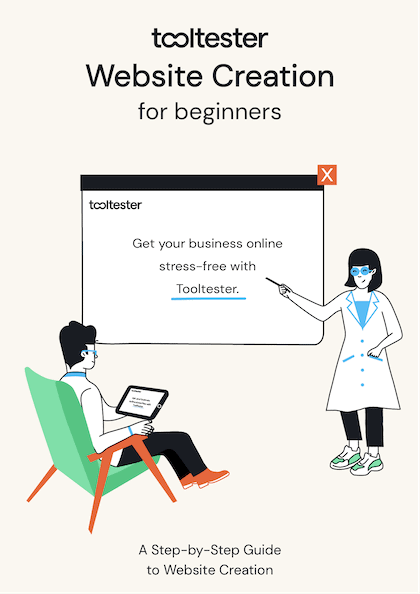The shrill sounds of your alarm jolt you away from peaceful dreams. You fling your arm over and hit the snooze button for the third time. With a long, painful groan you realize at last it’s time to get up. At least it’s Friday, you reassure yourself. Once today’s over you’ll have the weekend to rescue your sanity. That is, of course, until the tedium and drudgery continues all over again on Monday.
You once had dreams of living on your own terms, enjoying the coveted freedom of being a “laptop warrior.” But what happened to those goals? What deterred you from pursuing the nomadic lifestyle of a freelance writer? Perhaps the nagging voice in your head convinced you that freelance writing could never turn into a sustainable career. So instead you chose the false comforts and safety of a corporate job, a decision that plagues you every morning your alarm goes off.
Here’s what may surprise you: freelance writing can not only be a lucrative endeavor; it can potentially net you far greater income than what any 9-5 job could ever hope to provide. With focus, perseverance and a clear strategy in place, the life of an abundant writer is certainly feasible. This article will show you how it’s done.
6 Ways to Earn More Money as a Freelance Writer
There’s plenty of money to be made freelancing as a writer. Whether focusing on it as a side hustle or with the intention to go full time, here are six fundamental strategies that can help you command higher rates and secure more work as a professional writer-for-hire.
1. Develop Your Writing Skills
The first step to becoming a well-paid freelance writer begins with developing the skills and proficiency necessary to get your clients the results they need.
Not sure what skills to focus on? Start with your passions. What do you already spend your days researching? What are you an expert on, and could you easily share that knowledge with an audience?
It’s much easier to become an authority figure if you’re in love with what you write about. This will of course help you produce better work, but it’s really only half the equation. To truly excel as a money-making wordsmith, your chosen passion must also satisfy these two requirements:
- Your writing addresses a market need. Is there a void that your knowledge and voice can fill? Are enough people clamoring for solutions or advice that currently remains elusive?
- Your writing provides value. Once you’ve determined a need in the market, does the writing you provide offer a solution that people are willing to pay money for?
To put it simply: Be the missing link to a problem that is painful enough for people to shell out money to solve.
Get Specific
No one strikes gold as a generalist—the riches are in the niches. Deciding to simply be “a writer” is too vague an idea; instead, think about what type of writer you want to be and the industry you’ll primarily serve.
While it’s definitely a plus if you already have writing experience, consider how you can apply your talents in a way that clients will view as a valuable investment. Eloquent prose and impressive vocabulary might make you a better novelist, but they mean nothing if they don’t translate into one absolute: profits.
Companies pay high dollar for writers who can bring in sales. Conversion-focused copywriters, for instance, help businesses translate their value to consumers in an engaging way that encourages action (namely, making a purchase). Imagine how valuable you’ll appear to these clients if you are an expert in their niche, know how to speak to their audience, and can write persuasively with fine-tuned wording.
KEY TAKEAWAY: If you can focus on what you love, in a specific field with a major problem, providing a service that people will pay money for – then you will have a very fruitful career as a freelance writer.
2. Build Your Portfolio
It’s one thing to talk the talk; it’s another to actually walk the walk. Before you can expect to command high rates, you must first prove yourself as a skilled writer. The only sure-fire way to do that is to let your work speak for itself.
Building an impressive portfolio is one of the most significant hurdles for a beginning writer to surmount. While it’s a bit of a catch 22 when starting out—in order to get work you first must already have done work—that doesn’t mean you can’t find creative ways out of this hole.
Free Samples
If you’re struggling to find opportunity then perhaps it’s time to create it yourself. Itching to write articles on personal finance? Don’t wait for someone to hire you to do it; write a sample piece and publish it on your own. Hoping to be an in-demand sales letter writer? Like most skills, only through practice can you reach professional levels. Populating your early portfolio with self-generated work is a great way to prove to others—and most importantly, yourself—that you’ve got the chops to write competitively.
Another way to gain practice is by offering your services to clients for free. While it’s not recommended to work unpaid past your first or second gig, there are several benefits to this approach: you’ll earn experience while simultaneously gaining exposure, and your initial “test run” with a client may likely lead to long-term paid work if they’re happy with the result. Just be careful you’re not undercutting your value by staying in an unpaid arrangement for longer than necessary.
Referrals & Testimonials
The final piece of a knockout portfolio is your testimonial section. Rave reviews and referrals are the ultimate currency; if you can show that you’ve delivered the goods for others, then your next job is going to be significantly easier to land. A sleek portfolio and long resume are nice to have, but all prospective clients really care about are results. Prove that you can get them, and you’ll never eat Ramen for dinner again.
3. Guest Blog for High Profile Sites

Guest blogging is another great way to gain exposure, add to your portfolio, and build an audience. Sometimes the high-profile sites you write for will even offer modest compensation for your writing—though that can typically cap out at around $100. Considering the time and energy required to produce a high-quality piece, while also adhering to the publication’s strict editorial guidelines, you may find yourself quickly discouraged from making any serious money via guest blogging.
Somewhat counter-intuitively, many authors are making big bucks from getting their work published on high profile sites, yet they often don’t receive a dime from the sites themselves. So how are they making their money? Are these writers cheating the system somehow? Of course not! They’re earning money from something called backlinks.
Backlinks
SEO is the gold rush of the modern era. Ranking high in the search engine algorithms is usually the primary objective of every profitable website—and backlinks are one of the top 3 factors Google uses for these rankings. It is for this reason that many businesses are more willing to pay authors a high premium for building them a backlink rather than directly writing them a blog post.
A backlink is when a website points to a relevant article that exists on another site. The higher authority the website is, the bigger the boost in SEO the linked website will receive. So if a chiropractor is looking to increase web traffic to his practice’s website, a direct link to him from a New York Times article about chiropractors will be like a gift sent from heaven. Such a fortuitous match like that is perhaps a bit fantastical; in reality, it will take some legwork and determination for both the author and the business to connect on mutual terms.
For writers, finding the right businesses who are in need of backlinks can be a time-consuming process, often involving days of direct outreach and cold emails. While this is one approach to take, there is also a much simpler method for authors to connect with relevant websites in need of backlinks—and it happens to benefit both parties equally.
Freelance writers capable of contributing guest articles on quality websites can use their writing skills to build backlinks for businesses, in some cases, earning up to $1000 for building a single link.
4. Create Your Own Website or Blog
Of course, there’s no use having a portfolio if it doesn’t exist somewhere! Creating your own website is an essential business tool for any freelancer, most especially writers. This is more than just your calling card; it’s a platform for your thoughts, voice and creativity to serve a global audience.
Even if you lack technical skills, taking a DIY approach to your website is fortunately a pretty simple process these days. Website builders are an invaluable tool to get a website set up quickly; if you need help deciding which one is best for you, read our article on the best website builders for freelancers here.
Simply put, having your own website is an invaluable piece of your online business. Without one, establishing your credibility or making it easy for prospective clients to find you will be next to impossible. However, just because you have a website doesn’t mean it will bring guaranteed income, which brings us to our next topic:
5. Monetize Your Website
Now that you’ve set up your website, don’t underestimate its moneymaking potential as a whole business in itself. Building a popular, niche blog with outstanding articles is really only half the battle; your next step in establishing a profitable website is figuring out what you can sell through it.
Affiliate Marketing
Affiliate marketing is essentially introducing your readers to a product or service, using your gifts as a writer to build it up as something irresistible, and then earning a profit once your readers actually buy it. There are tons of affiliate programs out there—the most popular one being Amazon—and the potential to earn good money from the practice is virtually limitless.
Obviously, the more traffic your website drives on a daily basis, the greater the potential dollar signs you’ll see. Such a high bandwidth of traffic will of course take time to build—but the most important thing for you to concentrate on right now is providing your audience with honest, valuable help.
Only push the products that you truly believe in and ideally have used yourself. First assess whether the product genuinely serves your niche and provides something of value. If the whole thing feels even the least bit forced, your audience will sniff it out and immediately shut down. Therefore, the affiliate links that organically tie into or support your own service will generally stand the greatest chance of taking off.
To get started with affiliate marketing, think of a product that you’re passionate about, and then run a Google search to see if that product offers an affiliate program, or if it is a part of an affiliate network. When you find a good match, do a bit of research to see how its commissions work. Once you’ve become an affiliate, use your powers as a persuasive writer to introduce the product to your audience in an engaging, conversational way. We also have an article that helps you find a suitable website builder for your affiliate business.
PRO TIP: Remember, people are always after the results of a transformed state. If you can paint a vivid picture in their heads of how wonderful their lives will be after obtaining a certain product or service, they will then eagerly shell out the cash to make that transformed state a reality.
Digital Products
If you get good at selling others’ products, imagine how much money you could make selling your own!
Ebooks, online courses, and other downloadable resources can earn the savvy freelance writer some very hefty passive income, with the E-Learning industry on its way to exceeding $300 billion. So should you just toss whatever together and throw it onto your website, hoping for the best? Or is there a system you can follow that will help drive better results? While it’s not an exact science, after a couple years of heavy entrepreneurial research I have found that there is indeed an optimal sequence of actions that drives better conversions. That sequence is as follows:
Create an Ebook
You’re not necessarily trying to become a best-selling Kindle book author here. Think of this as more like an expanded blog article—10,000 words maximum—that boils down one topic into easily digestible content that provides value. Pick a subject that you can offer a unique and expert perspective on, and then teach something useful to your audience that aligns to your niche service.
For inspiration, feel free to check out the e-book that we created ourselves for Tooltester.
The objective is not to earn money by selling this ebook; it is instead to gain exposure and build a following. You want eyes on the prize—so offer it for free and point links to its download page all across your website and social media platforms. The reason you’re giving it away for nothing has to do with the next step:
Build an Email List
In order for someone to download your ebook, they must provide their email address. Why? Harvesting emails is one of the most powerful actions a business can take, especially for writers.
This is your opportunity to speak directly with your audience and build a connection. Studies show that email outreach is nearly twice as effective as social media posts in driving acquisition and retention. Email is a platform that people pay regular attention to, so you’ll want to build your subscriber list as early as possible in your business. When the time comes to market a new product or service across the web, your trusty email subscribers will undoubtedly account for the vast majority of its sales.
Some helpful tips on how you can create an email list, you may find in this article.
Provide Value to Your Subscribers
The people who stay on your email list are genuine fans of what you have to say, so don’t be afraid to speak to them on a regular basis. Delivering consistent advice and knowledge goes a long way towards establishing trust and credibility. A little bit every day and you’ll soon have a legion of super fans.
Not every email has to be a sales pitch or a nudge to invest in your services. If your message comes from a genuine place of help, your audience will recognize and appreciate the sentiment. This is really about planting seeds. After tending to and caring for your young seedlings, it will eventually come time to harvest the crop.
Pitch Them Your Online Course
Now the courtship has its payoff. It’s time to roll out the big ticket items: online courses that can sell for as much as 4 or even 5 figures a pop.
For the most devoted readers who devour every morsel of advice you’ve shared up to this point, many will be eager and willing to pay high dollars to continue their training with someone they trust.
The particulars of creating a successful online course are beyond the scope of this article, but for now keep this in mind: the price people will pay for a course is in direct relation to the value it provides them, not necessarily the production values. Your first online course doesn’t have to be perfect. You also don’t have to be the world’s greatest landing page copywriter; all that matters is that you can teach someone to create their own successful landing page, and they will happily pay top dollar for the results.
What About Ads?
Finally, we should briefly talk about relying on ad revenue as a viable way to earn more money from your website. While I may be biased in my distaste for ads as a substitute for meaningful content, the fact of the matter is that consumers are growing increasingly more annoyed with the obnoxious tactics of bad advertising.
While banner ads may as well be invisible, there’s an even more compelling reason why they’re probably not worth your time: you simply won’t make enough money for them to matter. Unless you’re hitting hundreds of thousands of views per day, you’ll realistically be raking in mere fractions of a dollar in ad revenue. Compared to what can be achieved through things like affiliate marketing, just do the world a favor and ditch the ads.
6. Find Writing Jobs on Freelancing Platforms
Some professional writers may scoff at the idea of going through a freelancing platform for quality work. Their argument is that most of the clients on there are bargain hunters only seeking the lowest bidder—and in one regard, their assumptions are unfortunately correct. However, any freelance writer hoping to boost their earnings should consider the ways in which they can earn good money from these platforms, once they understand how to use the system in their favor.
Let’s look at the most popular platforms out there, Upwork and Fiverr. Are the vast majority of the job posts looking for bottom of the barrel rates? Yep. Can it be discouraging to search for writing jobs when all you see are clients asking for gold yet willing to pay only for dirt? You bet. So why even consider Upwork as a viable moneymaking venture? Because lurking in the shadows there exists a small percentage of worthy clients who are willing to pay you the hourly rate of your dreams. To acquire these prized clients, you must lure them in like bees to honey.
Although I personally do not devote much time to Upwork, I nevertheless have earned a solid 5-figure income from clients on the platform. Interestingly, less than 10% of that money has come from jobs that I have directly applied to; rather, it is from clients who instead sought me out. Believe it or not, many premium clients do actively search for candidates who are a good match for their needs, or they’ll pay Upwork a fee to find these freelancers for them. So how do you ensure you show up in their search? It’s all about your profile.
I’m amazed at many of the writers’ profiles I see on Upwork. These freelancers go on and on about their personal journeys in becoming writers or why they love writing so much that they often forget to talk about what’s most important: the client. Again, remember that the thing clients care most about is results. When a prospective client reads your profile, they must immediately and clearly understand how you can serve their needs, and how the results you’ll get them will create a highly desirable transformed state.
Crafting the perfect profile entails many of the same strategies we’ve covered above. Here’s how you can apply them to attract great clients on Upwork:
- Generalists are the ones who get stuck in the low-paying gigs. To strike the right nerve with a dream client, you must narrow your service down to a specific offering within a niche field.
- Your “Skills” section should list important keywords that combine your passion with a market need that people are willing to pay for.
- Use your headline to promise results. Don’t waste this space on a generic job title; tell clients exactly what you can do for them in a tightly phrased, active sentence.
Finally, let me stress again that it really is possible to earn good money from bidding sites like Upwork. Don’t fall prey to the scarcity mindset that plagues many of the freelancers on there. Set your rates high and don’t be afraid to stick to them. Working for a stingy client can negatively impact more than just your income; it can sour the pride you have for your talents, which is never a good place for a writer to be.
Conclusion
Whoever believes freelance writing can’t pay the bills simply hasn’t been paying attention to recent industry shifts. The opportunity to earn not only just adequate income but wealth has never been so accessible for a determined writer. Whether you’re looking to dip your toes into the world of freelancing, or you’re ready to take the plunge and quit your day job, we hope this article gives you clarity and confidence to take control of your writing career and aim for big earnings.
In case you have any more questions our you want to leave us some feedback, please drop us a comment below and we’ll get back to you as fast as possible!
THE BEHIND THE SCENES OF THIS BLOG
This article has been written and researched following a precise methodology.
Our methodology


